12.08.21
Interactive Dialogue with the Special Rapporteur on the human rights of migrants
23 and 24 June 2021
47th Session of the Human Rights Council, 21 June to 15 July 2021.
ITEM 3 – Promotion and protection of all human rights, civil, political, economic, social and cultural rights, including the right to development
By Beatrice Serra
Executive Summary
In 1999, the UN Commission on Human Rights endorsed the mandate of the Special Rapporteur on the human rights of migrants. The Special Rapporteur is in charge of monitoring human rights violations committed against migrants in breach of international obligations and providing recommendations to enhance the promotion, protection, and implementation of the human rights of all migrants, regardless of their status.
At the 6th and 8th meeting of the 47th session of the Human Rights Council, the Special Rapporteur on the human rights of migrants presented a report. Considering that pushbacks are a widespread phenomenon that amount to a breach of States’ international obligations to protect the human rights of migrants at international borders, particularly the prohibition of collective expulsion and refoulement, the report focuses on human rights-based border governance practices and makes recommendations to address the human rights impact of pushbacks of migrants on land and at sea. The recommendations provided by the Special Rapporteur appear even more crucial considering that pushback practices have worsened during the COVID-19 pandemic, thus exacerbating the dire situation of migrants.
Additionally, at the 6th and 8th meeting of the 47th session of the Human Rights Council, the Special Rapporteur on the human rights of migrants held an interactive dialogue on means to address the human rights impact of pushbacks of migrants on land and at sea. The current Special Rapporteur pointed out that States often respond to migration flows by creating and progressively increasing barriers which lead to the return of migrants without individual assessment of their human rights protection needs and safeguard measures. Therefore, the Special Rapporteur invited States to take all necessary steps to end such practices and ensure human rights protection in compliance with international law and standards, particularly by providing an individual assessment of each migrant's situation. Delegations expressed their support of the report, reiterating their full commitment to respect States’ obligations and the human rights of all migrants, being deeply concerned and giving serious consideration to the findings of the report. Most delegations expressed their concerns of the impact of the COVID-19 pandemic in exacerbating situations of vulnerability and highlighted the importance of including a strong gender-based, child-oriented approach in migration policies and governance. Civil society congratulated the Special Rapporteur on his report denouncing pushbacks that deny migrants of their fundamental rights by depriving them access to protection as defined at both the international and national level.
Background
The UN Human Rights Council appointed a Special Rapporteur on the human rights of migrants in 1999 (Resolution 1999/44). The mandate, which was most recently renewed in 2020 by Resolution 43/6, focuses on examining ways and means to overcome obstacles to the full and effective protection of the human rights of migrants, recognizing the particular vulnerability of women, children and those undocumented or in an irregular situation. Considering that migration is a long-lasting phenomenon throughout history and that the number of migrants is growing worldwide, the mandate has the purpose of elaborating recommendations on strengthening the promotion, protection, and implementation of the human rights of migrants in situations of vulnerability.
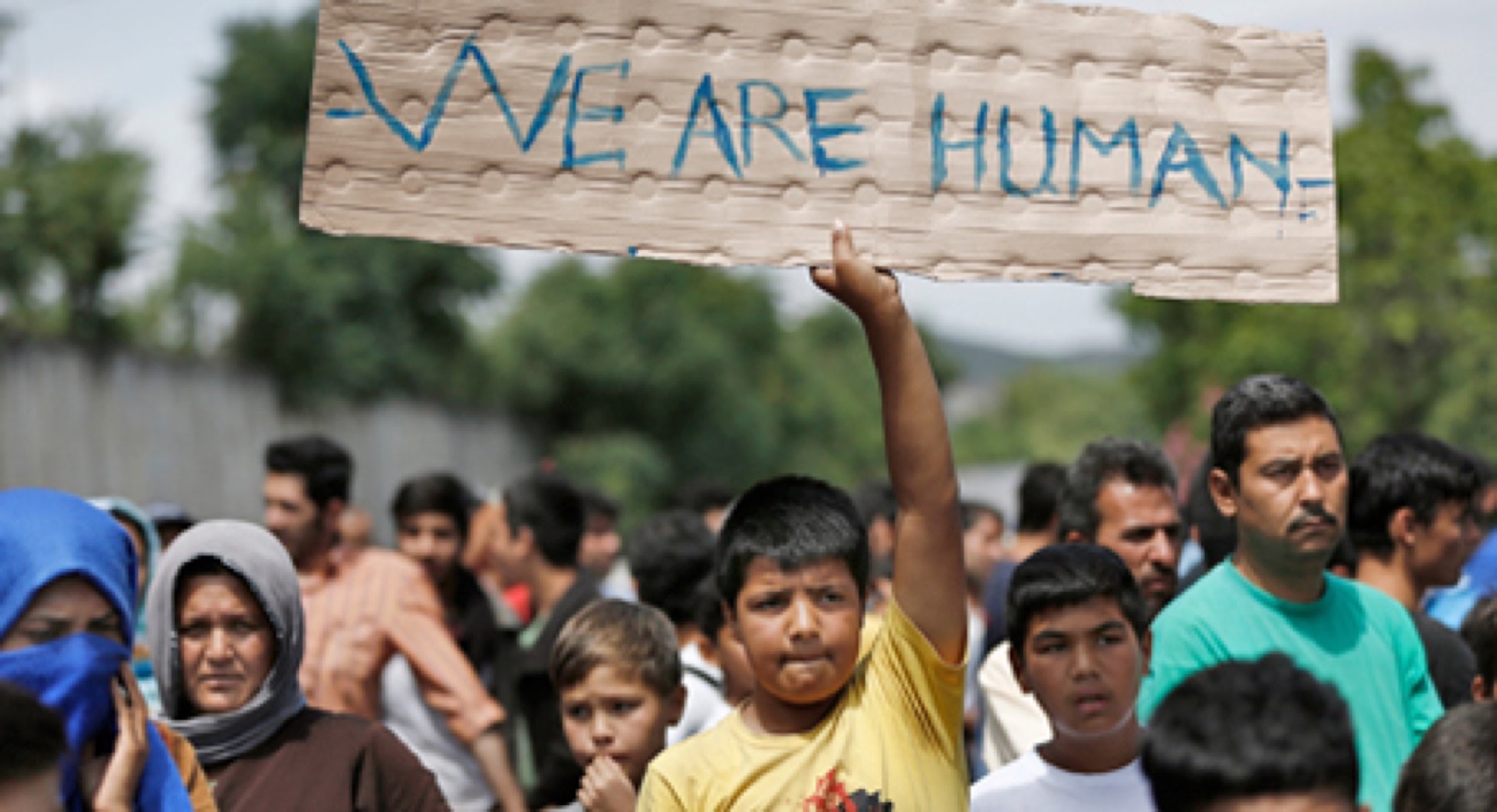 The Global Compact for Safe, Orderly and Regular Migration (A/RES/73/195), adopted on 10 December 2018, is the first intergovernmental agreement, prepared under the auspices of the United Nations, to cover all dimensions of international migration in a holistic and comprehensive manner. The OHCHR has welcomed the Global Compact as an important framework that places migrants and their human rights at the center of migration policies and governance in order to strengthen human rights protection for all migrants, regardless of status. Grounded in the Universal Declaration of Human Rights and each of the nine core international human rights law instruments, the Global Compact reaffirms States’ obligations to respect, protect, and fulfill all human rights for all migrants. Moreover, the Principles and guidelines on the human rights protection of migrants in vulnerable situations focus on the protection of the human rights situation of those migrants who cannot be qualified as refugees, yet who need international protection because of the situations they left behind, the circumstances in which they travel or the conditions they face on arrival, or because of personal characteristics such as their age, gender identity, disability or health status. Lastly, the Recommended Principles and Guidelines on Human Rights at international borders aim to assist States in practical ways to build human rights capacity at borders, ensuring human rights in rescue and interception, screening, avoiding detention, and enabling human rights-based return or removal.
The Global Compact for Safe, Orderly and Regular Migration (A/RES/73/195), adopted on 10 December 2018, is the first intergovernmental agreement, prepared under the auspices of the United Nations, to cover all dimensions of international migration in a holistic and comprehensive manner. The OHCHR has welcomed the Global Compact as an important framework that places migrants and their human rights at the center of migration policies and governance in order to strengthen human rights protection for all migrants, regardless of status. Grounded in the Universal Declaration of Human Rights and each of the nine core international human rights law instruments, the Global Compact reaffirms States’ obligations to respect, protect, and fulfill all human rights for all migrants. Moreover, the Principles and guidelines on the human rights protection of migrants in vulnerable situations focus on the protection of the human rights situation of those migrants who cannot be qualified as refugees, yet who need international protection because of the situations they left behind, the circumstances in which they travel or the conditions they face on arrival, or because of personal characteristics such as their age, gender identity, disability or health status. Lastly, the Recommended Principles and Guidelines on Human Rights at international borders aim to assist States in practical ways to build human rights capacity at borders, ensuring human rights in rescue and interception, screening, avoiding detention, and enabling human rights-based return or removal.
In this context, the 47th Human Rights Council held an Interactive Dialogue with the Special Rapporteur on the human rights of migrants to provide States with legal guidelines and recommendations for halting pushback practices and policies that violate the human rights of migrants. During this Interactive Dialogue held on 23 and 24 June 2021, the Council considered the report of the Special Rapporteur A/HRC/47/30 on “means to address the human rights impact of pushbacks of migrants on land and at sea”.
Report of the Special Rapporteur
Report A/HRC/47/30 of the Special Rapporteur on the human rights of migrants, Felipe González Morales: “Report on means to address the human rights impact of pushbacks of migrants on land and at sea”
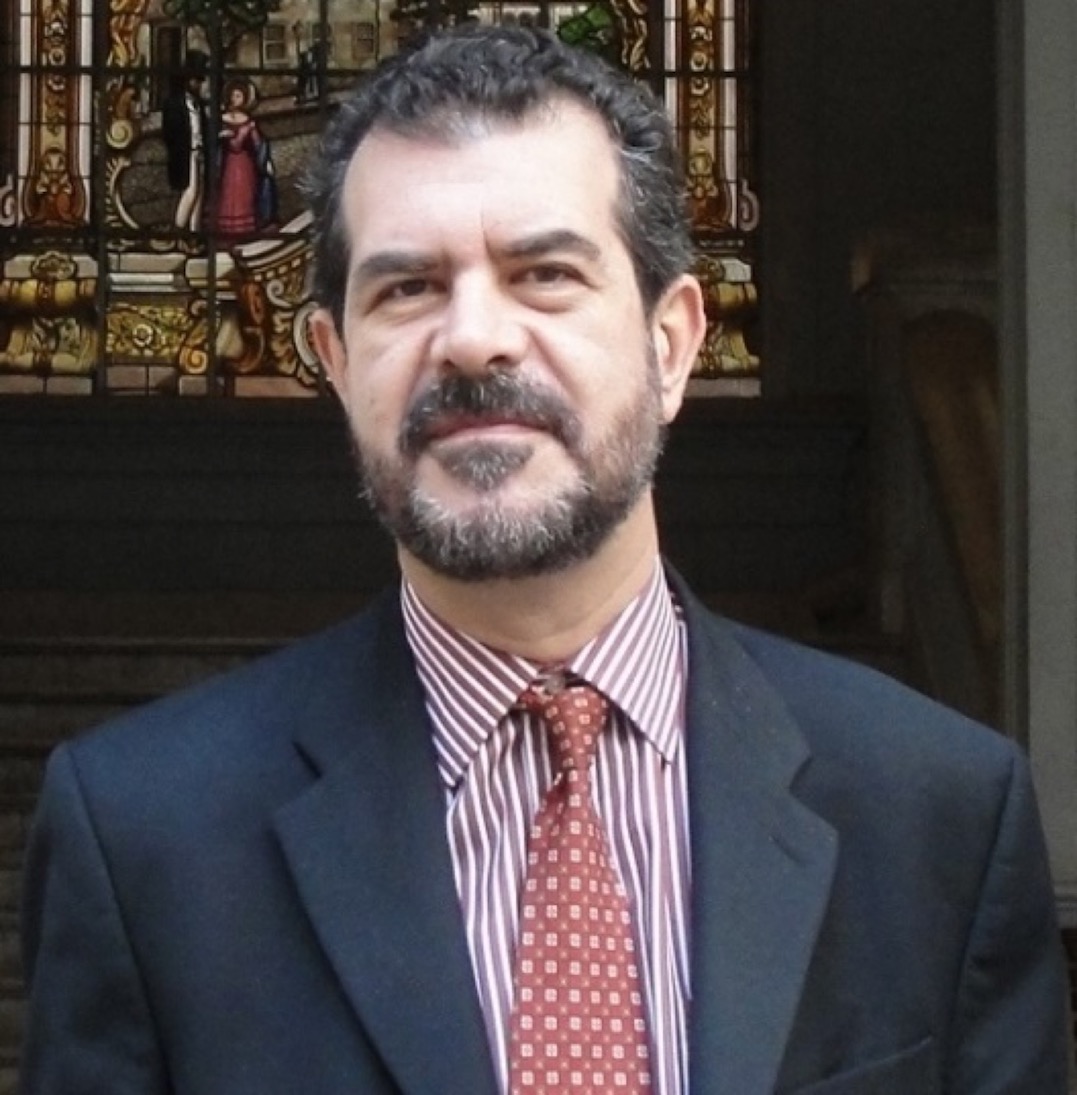 The present report considers the Special Rapporteur’s activities carried out during the reporting period. It also gives a working definition of pushbacks by analysing the impacts of current pushback practices, including in the context of the COVID-19. Considering challenges that States face in guaranteeing access for migrants to due process and safeguards at international borders, the report focuses on human rights-based border governance practices and makes recommendations to address the human rights impact of pushbacks of migrants on land and at sea. Finally, the Special Rapporteur stresses that pushbacks amount to a breach of States’ international obligations to protect the human rights of migrants at international borders, particularly the prohibition of collective expulsion and refoulement.
The present report considers the Special Rapporteur’s activities carried out during the reporting period. It also gives a working definition of pushbacks by analysing the impacts of current pushback practices, including in the context of the COVID-19. Considering challenges that States face in guaranteeing access for migrants to due process and safeguards at international borders, the report focuses on human rights-based border governance practices and makes recommendations to address the human rights impact of pushbacks of migrants on land and at sea. Finally, the Special Rapporteur stresses that pushbacks amount to a breach of States’ international obligations to protect the human rights of migrants at international borders, particularly the prohibition of collective expulsion and refoulement.
Pointing out the absence of an internationally agreed definition of “pushbacks” in the context of migration, the report describes “pushbacks” as any measures, actions or policies taken by States, sometimes involving third countries or non-State actors, effectively resulting in the removal of migrants, individually or in groups, including asylum seekers, being summarily forced back, without an individual assessment of their human rights protection needs, to the country or territory, or to sea, whether it be territorial waters or international waters, from where they attempted to cross or crossed an international border. This definition includes practices that take place before an individual has entered a State’s territory, as well as within the State’s territory, including preventing disembarkation, curbing onward travel or expelling migrants to the outside of a State’s territory. It also specifies that the transnational nature of some State actions may implicate the responsibility of multiple States in certain cases, for instance on the high seas and elsewhere when States act extraterritorially, but it never exempts States from their international obligations and accountability.
States must respect, protect, and fulfill the human rights of everyone on their territory or within their jurisdiction or effective control, regardless of migration status and without discrimination of any kind. The international legal framework requires States to comply with the prohibition of collective expulsions, the principle of equality and non-discrimination, the principle of non-refoulement, the right to seek asylum, the right to life, the prohibition of torture, the promotion of gender equality, and the rights and best interests of the child. Additionally, States must ensure access to justice for victims of human rights violations and have the duty to provide an adequate and effective search and rescue service at sea.
Pushbacks often worsen situations of vulnerability, including those based on gender, age, race, ethnicity, nationality, migration status, sexual orientation and gender identity, among others. Women and children are at an especially high risk of sexual and gender-based violence, abuse, and trafficking as well as at a greater risk of drowning or hypothermia in case of maritime disaster. In general, pushbacks undermine States' commitment to take all reasonable precautionary steps to protect life and prevent excessive violence, and to cooperate internationally to save lives and prevent migrant deaths and injuries. Exceptional circumstances such as the size of migratory movements or the existence of a public health emergency (COVID-19) do not justify pushback measures.
During the past years, reported pushback policies and practices along most migration routes have deployed a security-focused approach that increases the risk of human rights violations. Numerous submissions have raised concerns regarding Greece’s border governance at both its land and sea borders with Turkey and asylum seekers entering from the Evros land border, as well as pushbacks implemented by Croatia, Algeria, Libya, Cyprus, Malta and Poland that are not in compliance with the aforementioned principles and obligations. The report raises concerns regarding the denial of access to territory and/or access to asylum seekers put in place by France and Hungary. Moreover, the Special Rapporteur reiterates his concerns of the use of force deployed in some pushbacks, such as beatings, electric shocks, forced river crossings, the stripping off of clothes, gender-insensitive body searches and spray-painting the heads of migrants with crosses. In other cases, migrants arriving in larger groups have been targeted by indiscriminate use of chemical irritants, water cannons and kinetic impact projectiles by law enforcement authorities.
The report points out that entering into bilateral and multilateral agreements to provide joint responses to migration-related challenges cannot bypass human rights obligations or migrants’ safeguards, particularly the individual assessment of each migrant’s situation. Additionally, States increasingly externalize border governance measures which may prevent migrants from exercising their rights under the international law. For instance, Chile, Ecuador and Peru have turned to militarizing border governance in response to large movements of Venezuelans outside of their country. The report also expresses concerns about the Australian “Operation Sovereign Borders”, the so-called US “Remain in Mexico” policy, and the special regime applied in the Spanish enclaves of Ceuta and Melilla. Similarly, Australia has reportedly turned back vessels in various ways, while Italy was found responsible for failing to rescue a vessel transporting over 200 migrants, including 60 children, at sea, who died as a result of the delay; the cooperation between Italy and Libya has resulted in the circumvention of the prohibition of refoulement and collective expulsion. The absence of regional responsibility-sharing mechanisms in the Asia-Pacific region and Frontex operations at the external borders of the EU are also a cause of concerns.
The COVID-19 pandemic has made border governance even more complicated for States. Considering that pushbacks can be related to the lack of preparedness to provide human rights-based entry and reception support and lack of awareness of States’ obligations, States should assure that the personnel in contact with migrants at international borders have knowledge of human rights law and standards, and procedural safeguards while implementing age-sensitive and gender-responsive screening and referral protocols. In addition, humanitarian actors, human rights defenders and civil society are facing several obstacles in conducting their legitimate activities, also facing criminal and administrative proceedings. In this context, the Special Rapporteur welcomes the proposal by the European Commission, in its New Pact on Migration and Asylum, to establish independent national mechanisms to monitor human rights at the borders of the European Union.
Despite numerous domestic legislation protecting the human rights of migrants, impunity for pushbacks is still prevalent. In many countries, access to justice for migrants is severely compromised by the lack or failure of internal oversight mechanisms to adequately address and prevent violations; independent human rights monitoring at borders is sporadic and cannot in itself prevent violations or abuses without the cooperation of the State which must comply with international standards and law. Therefore, the Special Rapporteur urges Member States to put an end to pushback practices, recommending States to ratify and implement, also through the harmonization of domestic law, the relevant international human rights instruments and to adopt a human rights-based, age- and child-sensitive and gender-responsive approach to protect and guarantee human rights of migrants.
Interactive Dialogue with the Special Rapporteur
 Geneva, 23 and 24 June 2021- At the 6th and 8th meeting of the 47th session of the Human Rights Council, the Special Rapporteur on the human rights of migrants held an interactive dialogue with stakeholders, under Item 3 of the Agenda.
Geneva, 23 and 24 June 2021- At the 6th and 8th meeting of the 47th session of the Human Rights Council, the Special Rapporteur on the human rights of migrants held an interactive dialogue with stakeholders, under Item 3 of the Agenda.
Mr. Felipe González Morales started the interactive dialogue by positioning the analysis of the impacts of COVID-19 pandemic at the core of his mandate and highlighting the importance of guaranteeing access to vaccines for all migrants. Considering that pushbacks are becoming a widespread global phenomenon which raises concerns about human rights of migrants, the report provides recommendations to States with the main purpose of addressing human rights concerns related to pushback measures and finding solutions to harmful pushbacks of migrants on land and at sea. Moreover, the Special Rapporteur thanked States, UN entities, human rights institutions and civil society organizations for their important inputs provided for the present report.
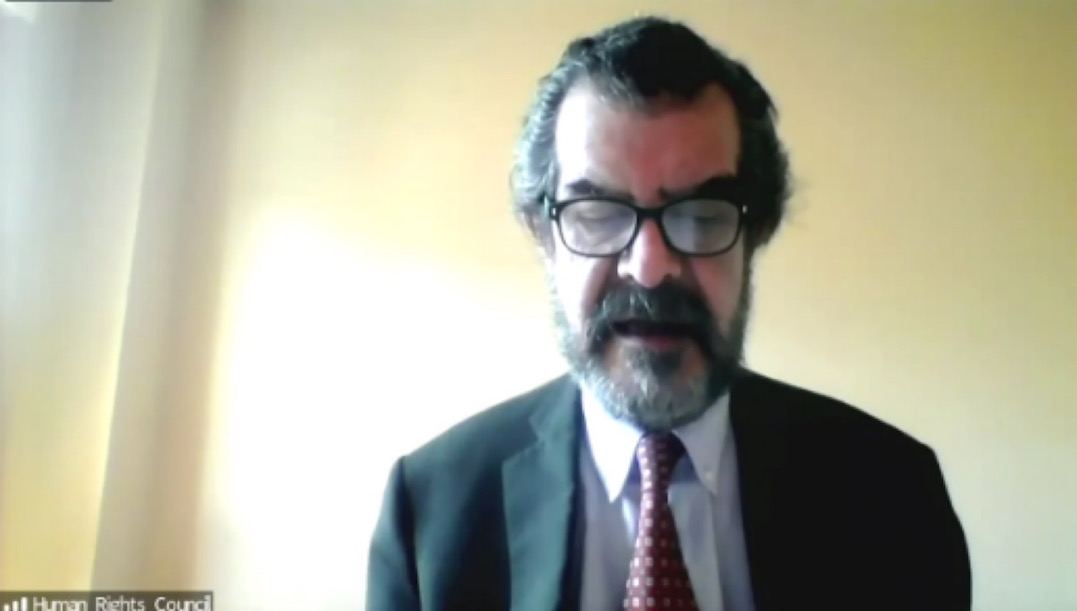 Mr. Felipe González Morales went on to point out that the examination of current pushback policies and practices reveals that States often respond to migration movements by creating and progressively increasing barriers which lead to the return of migrants without individual assessment of their human rights protection needs and safeguard measures. As stated in the report, the Special Rapporteur stressed that without individual assessment of each migrant situation and other procedural safeguards, pushbacks violate the prohibition of collective expulsion which in turn exacerbates the danger of human rights violations. Because pushbacks are incompatible with States’ obligation under international law, the Special Rapporteur called on States to end such practices and ensure full human rights protection.
Mr. Felipe González Morales went on to point out that the examination of current pushback policies and practices reveals that States often respond to migration movements by creating and progressively increasing barriers which lead to the return of migrants without individual assessment of their human rights protection needs and safeguard measures. As stated in the report, the Special Rapporteur stressed that without individual assessment of each migrant situation and other procedural safeguards, pushbacks violate the prohibition of collective expulsion which in turn exacerbates the danger of human rights violations. Because pushbacks are incompatible with States’ obligation under international law, the Special Rapporteur called on States to end such practices and ensure full human rights protection.
In the ensuing debate, delegations expressed their support of the report (A/HRC/47/30), recognizing how pushback practices amount to a serious breach of international obligations and human rights violation of migrants when conducted without an individual assessment and procedural safeguards.
The European Union reiterated its full commitment to respect States’ obligations under international law and the human rights of all migrants, giving serious consideration to allegations of mistreatment while properly investigating them through competent authorities. The EU regretted that the report fails to acknowledge the extraordinary efforts made by European governments to uphold their responsibilities despite the COVID-19 pandemic and how they ensured the wellbeing, protection, and assistance of thousand of migrants and refugees reaching EU border or rescued at sea.
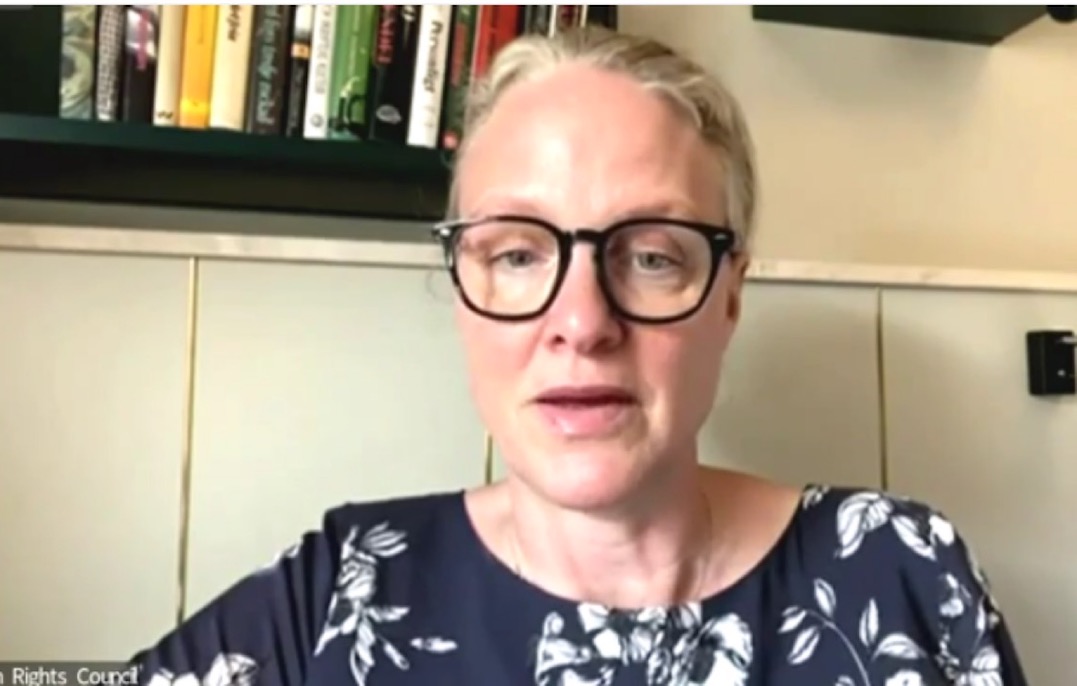 Sweden, on behalf of Nordic and Baltic countries, Denmark, Estonia, Finland, Island, Latvia, Lithuania and Norway, expressed deep concern of the report's findings. The group of countries pointed out that mixed migration presents complex challenges and thus requires effective and comprehensive migration management systems, including registration, evaluation of protection needs, and processing of asylum claims; it also requires well-functioning return and readmission for those without the legal rights to stay. The commitment to protect human rights of refugees and migrants irrespective of their status, in particular children, must remain strong and an efficient asylum system, that guarantees individual examination of the ground of their application in compliance with the rule of law, must exist.
Sweden, on behalf of Nordic and Baltic countries, Denmark, Estonia, Finland, Island, Latvia, Lithuania and Norway, expressed deep concern of the report's findings. The group of countries pointed out that mixed migration presents complex challenges and thus requires effective and comprehensive migration management systems, including registration, evaluation of protection needs, and processing of asylum claims; it also requires well-functioning return and readmission for those without the legal rights to stay. The commitment to protect human rights of refugees and migrants irrespective of their status, in particular children, must remain strong and an efficient asylum system, that guarantees individual examination of the ground of their application in compliance with the rule of law, must exist.
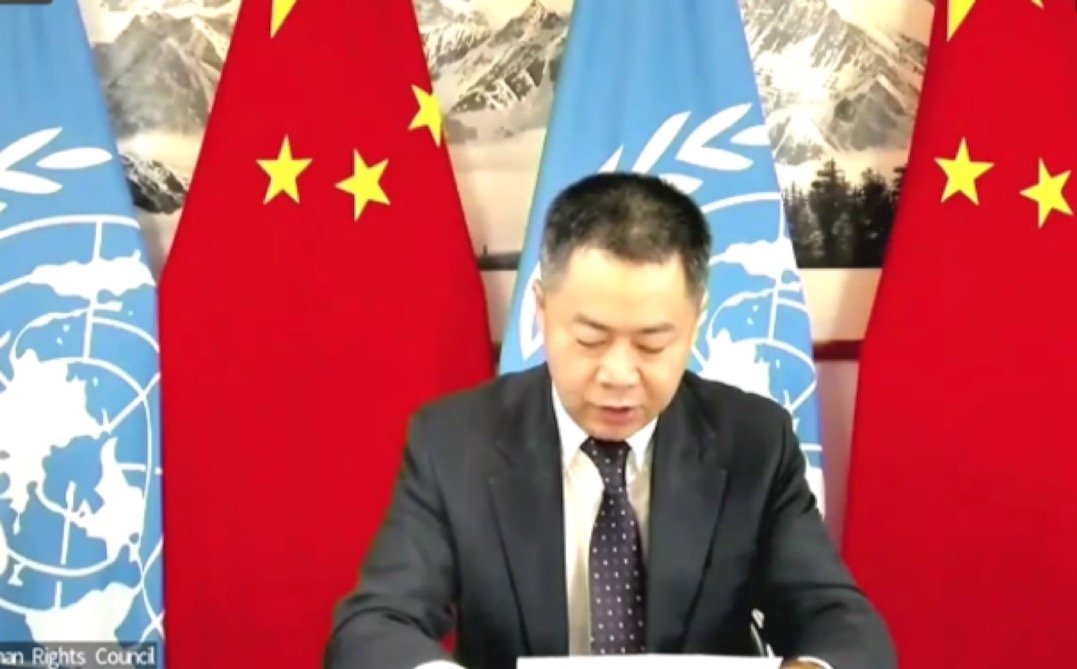 China, on behalf of a group of States, expressed concern for the variety of human rights violations faced by children, which increase the risk of violence, exploitation, and abuse. The country condemned the imprisonment of children which impedes the full enjoyment of their rights, the forced separation by their parents which results in splitting of families, and the deprivation of essential protection and services including health and education. The country called on States to guarantee that the standards and principles of the Convention of the Rights of the Child are respected without discrimination of any kind and regardless migration status. In order to halt these serious human rights violations which are not in the interest of the child and can have a life-long negative impacts, a child-based approach must be an essential part of each State’s migration law and policies.
China, on behalf of a group of States, expressed concern for the variety of human rights violations faced by children, which increase the risk of violence, exploitation, and abuse. The country condemned the imprisonment of children which impedes the full enjoyment of their rights, the forced separation by their parents which results in splitting of families, and the deprivation of essential protection and services including health and education. The country called on States to guarantee that the standards and principles of the Convention of the Rights of the Child are respected without discrimination of any kind and regardless migration status. In order to halt these serious human rights violations which are not in the interest of the child and can have a life-long negative impacts, a child-based approach must be an essential part of each State’s migration law and policies.
Cuba reiterated its commitment for the protection of people with great vulnerabilities, especially women and children, and rejected the use of political purposes of migration processes, such as the unjustified use of the right of asylum against certain countries. The country expressed concerns for the situation of migrants suffering discrimination, xenophobia, racism, and intolerance in various developed countries. Cuba denounced the illegal blockade imposed by the US against Cuba which poses an obstacle to the development of the country and stimulates irregular migration.
Bangladesh expressed concerns of the disproportionate impact that COVID-19 has on migrants, including stigmatization and discrimination in access to health care and vaccines. The country requested that the Special Rapporteur contributes to ensuring equal access to vaccines against COVID-19 for all migrants.
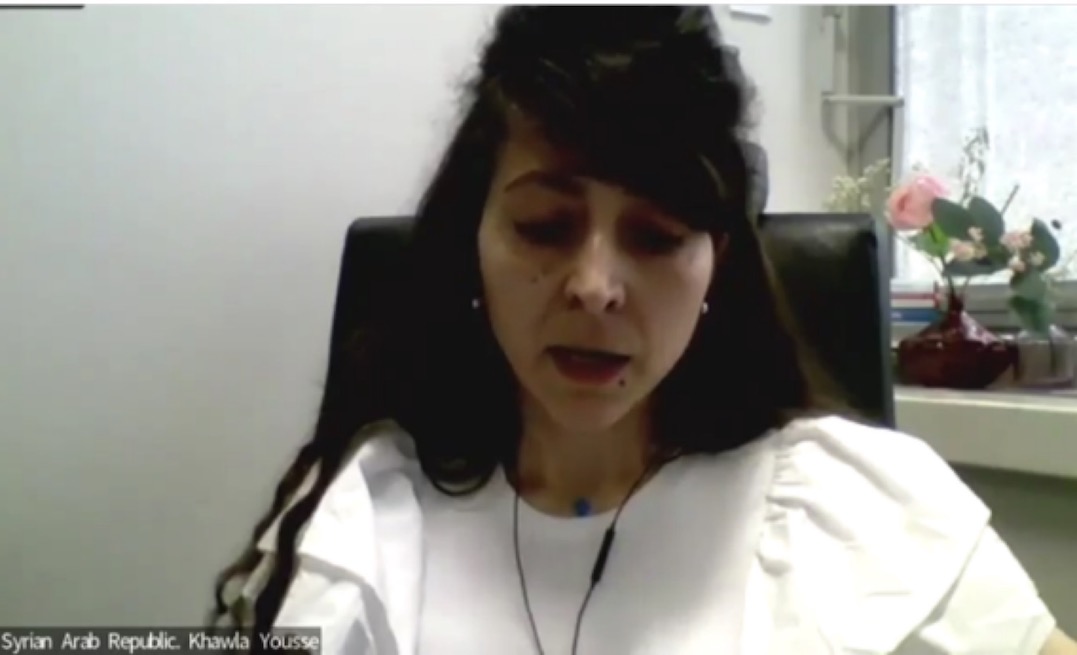 The Syrian Arab Republic condemned polices issued by some countries that generate negative effects on human rights, economic and social development, and humanitarian activities in other countries, including acts of military and economic aggression which constitute a direct cause of migration flows. Daily life difficulties push a large number of Syrians to leave their country as refugees or migrants, some of them taking illegal routes by forging documents and paying huge sums of money to smuggling networks that exploit them at borders. These realities reaffirm the importance of addressing the factors that help people to build and maintain a sustainable livelihood in their country of origin in order to better manage migration nationally, regionally, and globally.
The Syrian Arab Republic condemned polices issued by some countries that generate negative effects on human rights, economic and social development, and humanitarian activities in other countries, including acts of military and economic aggression which constitute a direct cause of migration flows. Daily life difficulties push a large number of Syrians to leave their country as refugees or migrants, some of them taking illegal routes by forging documents and paying huge sums of money to smuggling networks that exploit them at borders. These realities reaffirm the importance of addressing the factors that help people to build and maintain a sustainable livelihood in their country of origin in order to better manage migration nationally, regionally, and globally.
Greece noted with regret that pushbacks are described by the report as a phenomenon occurring in the high seas just between two actors, namely migrants and the receiving coastal State, without considering the important role played by transit countries. As documented, the country pointed out that some transit countries not only often fail to comply with international obligations, such as preventing regular departures and dismantling smuggling networks, but they also organize pushforwards that violate the human rights of migrants and instrumentalize human suffering.
El Salvador mentioned the strategy that the government is putting in place in collaboration with UNHCR to increase awareness and train migration authorities and the police to ensure that international obligations relating to the human rights of migrants are better known.
Turkey expressed concern for the continuous pushbacks, arbitrary detention, mistreatment, and inhumane living conditions of asylum seekers and refugees in Greece and found the number of pushbacks from Greece to Turkey alarming.
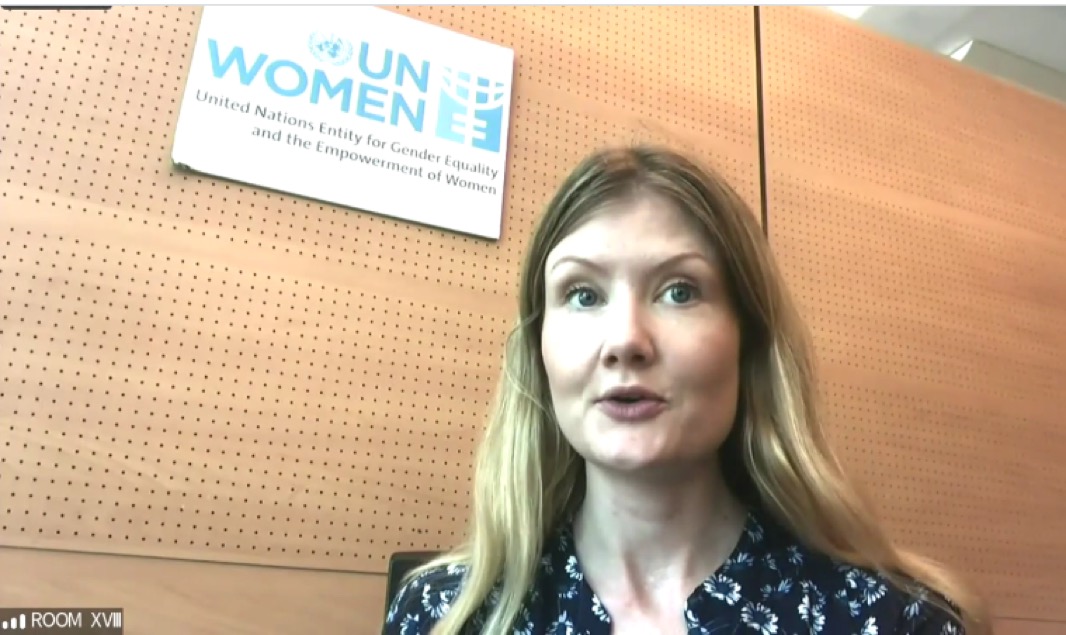 UN Women highlighted the importance of taking a gender-responsive approach to migration and border governance due to harmful impacts that pushbacks have in perpetuating sexual and gender-based violence. Additionally, UN Women welcomed the attention that the report paid to women human rights defenders and the work they did to protect the rights of migrants by raising awareness of the intimidation and harassment they continue to face. It is crucial that human rights defenders do not face legal and practical obstacles while carrying out their work, including addressing and monitoring instances of pushbacks.
UN Women highlighted the importance of taking a gender-responsive approach to migration and border governance due to harmful impacts that pushbacks have in perpetuating sexual and gender-based violence. Additionally, UN Women welcomed the attention that the report paid to women human rights defenders and the work they did to protect the rights of migrants by raising awareness of the intimidation and harassment they continue to face. It is crucial that human rights defenders do not face legal and practical obstacles while carrying out their work, including addressing and monitoring instances of pushbacks.
Civil society organizations welcomed the comprehensive report of the Special Rapporteur denouncing pushbacks to deny migrants of their fundamental rights by depriving them access to protection as defined at both the international and national level. One NGO expressed concern about children who keep being deprived of their liberties in many states around the world, calling on States to fill the gap in access to asylum procedures, including the use of age assessment procedures for child protection, legal assistance, and effective remedies. Another NGO highlighted that in Argentina, migrants have been the most affected by COVID-19: 53% of migrants have partially or totally lost their income and the situation is aggravated by the exclusion of migrants from programs created to help the recovery. In addition, some NGOs stated that instead of halting migration, border closures have risen the number of people facing difficulties in regularizing themselves and seeking protection.
After interventions from Member States, Observer States, National Human Rights Institutions and Civil Society Organisations, Mr. Felipe González Morales made his final remarks, pointing out that pushbacks are one of the most serious and repeated human rights violations he has seen during his mandate. Although security considerations made by States are entirely legitimate, they cannot be at the expense of the human rights of migrants. It is also alarming that pushback practices have worsened with the breakout of the COVID-19 pandemic, thus further exacerbating human rights violations of migrants. In order to combat such violations, the Special Rapporteur recommended conducting serious investigations into pushbacks and boosting national, regional, and international monitoring mechanisms; invited the Human Rights Council to closely monitor and follow up the matter of pushbacks; and urged States to act at the national level. Mr. Felipe González Morales concluded by highlighting that a gender perspective should be a critical component in any policies that tackle pushbacks, the importance of international cooperation in rescue at sea, and the crucial work of civil society organization which must not be criminalized for their actions.
Position of the Geneva International Center for Justice
The Geneva International Centre for Justice welcomes the report of the Special Rapporteur on means to address the human rights impact of pushbacks of migrants on land and at sea by providing recommendations and guidelines for States to halt such practices.
GICJ reiterates that pushback practices and measures are not in compliance with international obligations and standards to protect the human rights of migrants at international borders, particularly the prohibition of collective expulsion and refoulement. Therefore, there is a serious risk of many fundamental human rights of migrants being violated when such practices take place. These include but are not limited to: the right to not being discriminated against, the right to seek asylum, the right to life, and the rights and best interests of the child. Moreover, pushback measures and practices can exacerbate the anti-migration narrative that migrants face through hate speech, rejection, intolerance and violence in host countries, which in turn disempowers migrants, putting their human rights further at stake.
In that regard, GICJ remains committed in the protection of the human rights of all migrants, regardless of status, and calls on States to implement and ratify all relevant international instruments and to harmonize domestic laws with international standards and obligations. The human rights of all migrants arriving at borders must be respected and protected, particularly their right to receive an individual assessment of their situation. Most importantly, States should build a legal and practical framework at the international level through the cooperation of the origin, transit and receiving countries which should create safe legal routes, fight migrant smuggling and human trafficking networks, and assure basic human conditions. GICJ invites all actors to implement a human security approach focused on addressing the root causes of migration flows by developing strategies of prevention and by promoting stronger aid and human rights programs in countries of origin, particularly those affected by wars, conflicts, or unexpected disasters.
Justice, Human rights, Geneva, geneva4justice, GICJ, Geneva International Centre For Justice




